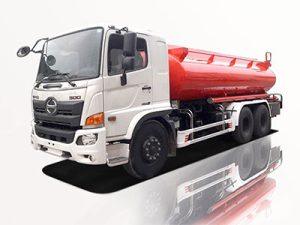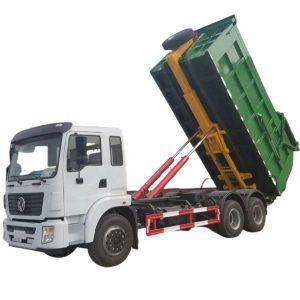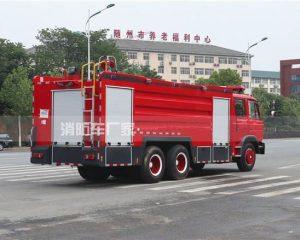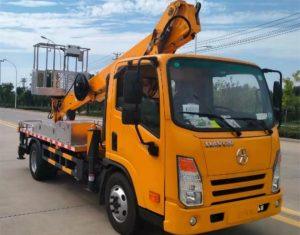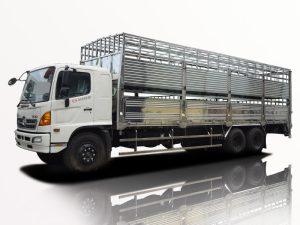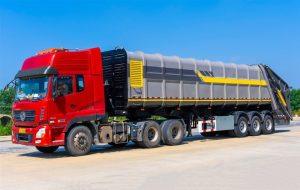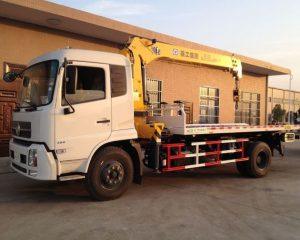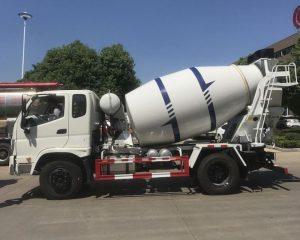Monday to Saturday - 8:00 -17:30
Waste Management Trucks: Essential Vehicles for Efficient Waste Disposal
Waste management trucks play a vital role in maintaining cleanliness and hygiene in urban and rural areas alike. These specialized vehicles are designed to collect, transport, and dispose of various types of waste efficiently. In this article, we’ll explore the different types of waste management trucks, their features, benefits, challenges, and the future of waste collection and disposal.
Understanding Waste Management Trucks
What Are Waste Management Trucks?
Waste management trucks, often referred to as garbage or refuse trucks, are heavy-duty vehicles specifically designed for collecting, transporting, and disposing of waste materials. These trucks are equipped with advanced technologies to enhance efficiency, safety, and environmental compliance.
Types of Waste Management Trucks
There are several types of waste management trucks, each designed for specific waste types and collection methods. Here are the most common types:
- Rear Loader Trucks: These trucks feature a hydraulic lift and a rear loading mechanism, making them ideal for residential waste collection.
- Side Loader Trucks: Equipped with robotic arms, these trucks can pick up bins from the curb, minimizing manual labor while maximizing efficiency.
- Front Loader Trucks: Typically used for commercial waste, these vehicles have a front-loading mechanism suitable for large dumpsters.
- Roll-off Trucks: Designed for transporting large containers called roll-off bins, these trucks are commonly used for construction or large waste cleanup projects.
Features of Waste Management Trucks
Built for Durability
Waste management trucks are constructed to withstand harsh conditions and heavy loads. They come with robust frames and high-capacity engines to provide the strength necessary for handling substantial waste volumes.
Waste Compaction Technology
Many waste management trucks are equipped with compaction systems that compress waste to maximize storage space. This feature allows trucks to collect more waste before needing to empty their loads, leading to more efficient operations.
Automated Systems
Modern waste management trucks often include automated systems for greater efficiency. Automated arms can lift and empty bins with minimal human intervention, reducing labor costs and enhancing safety.
Benefits of Automation
- Increased efficiency in waste collection.
- Improved safety for workers by reducing manual handling.
- Lower operational costs through optimized routes and fuel usage.
Benefits of Waste Management Trucks
Improved Hygiene and Public Health
Regular waste collection using specialized trucks helps to prevent hygiene issues, thereby contributing to better public health. Ensuring that waste is collected promptly reduces the risk of pest infestations and the spread of diseases.
Environmental Protection
Effective waste management trucks contribute to environmental protection by ensuring waste is disposed of correctly and in accordance with local regulations. Specialized trucks can also transport recyclables effectively, promoting recycling efforts.
Cost Efficiency
Investing in modern waste management trucks can lead to significant cost savings over time. Enhanced fuel efficiency, reduced maintenance needs, and optimized collection routes help municipalities manage their budgets more effectively.
Challenges in Waste Management
Rising Waste Generation
One of the significant challenges facing waste management today is the increasing amount of waste generated. Urbanization and population growth contribute to more waste generation, placing pressure on waste collection systems and trucks.
Regulatory Compliance
Waste management companies must comply with various regulations regarding waste disposal and environmental protection. Staying compliant can be challenging and may require investment in technology and training.
Operational Costs and Budget Constraints
Budget constraints can limit the ability of municipalities to invest in new and efficient waste management trucks. Balancing operational costs while maintaining service quality remains a pressing challenge.
The Future of Waste Management Trucks
Advanced Technologies
The future of waste management trucks lies in integrating advanced technologies, such as IoT (Internet of Things), AI (Artificial Intelligence), and automated driving systems. These technologies can optimize waste collection routes, predict maintenance needs, and enhance safety.
Electric Waste Management Trucks
As environmental concerns grow, the shift towards electric waste management trucks is becoming more prominent. These vehicles can reduce emissions significantly, contributing to greener waste management practices in urban areas.
Sustainability Practices
Future waste management solutions will not only focus on efficient collection but also on sustainability. This includes promoting recycling, composting, and waste reduction initiatives to minimize landfill usage.
Practical Tips for Efficient Waste Management
Assessing Local Waste Needs
Understanding the specific waste management needs of a community is vital. Local assessments can help in determining the right type of trucks needed and the best routes for efficient collection.
Regular Maintenance Schedules
Implementing a regular maintenance schedule for waste management trucks can prevent breakdowns and extend the life of the vehicles. This maintenance can include checks on the compaction systems, hydraulic arms, and engine performance.
Training for Drivers and Operators
Providing comprehensive training for drivers and operators ensures that they can operate the vehicles safely and efficiently. This training should include safe handling of waste materials, vehicle operation guidelines, and emergency response procedures.
Real-World Examples of Waste Management Trucks in Action
Case Study: City of San Francisco
The City of San Francisco has implemented a fleet of side-loader trucks equipped with automated arms to increase efficiency in residential waste collection. By utilizing these advanced technologies, the city has managed to improve its recycling rates significantly and reduce waste sent to landfills.
| Parameter | Before Implementation | After Implementation |
|---|---|---|
| Recycling Rate | 55% | 80% |
| Waste to Landfill | 40% | 15% |
Case Study: New York City’s Climate Action Plan
New York City has committed to reducing its carbon footprint by incorporating electric waste management trucks into its fleet. These trucks will not only help in reducing greenhouse gas emissions but also provide a quieter alternative for urban waste collection, benefiting residents in noise-sensitive areas.
Frequently Asked Questions (FAQs)
What are the common types of waste collected by waste management trucks?
Waste management trucks typically collect municipal solid waste, recyclables, yard waste, and hazardous materials. Different trucks may be used for specific types of waste based on regulations and business needs.
How often do waste management trucks collect waste?
The frequency of waste collection varies by municipality. Some areas may have daily collections, while others may have weekly or bi-weekly schedules, depending on population density and local regulations.
What are the benefits of automated waste management trucks?
Automated waste management trucks improve collection efficiency, reduce labor costs, enhance safety for workers, and provide consistency in service delivery due to their ability to operate with minimal human intervention.
How can I properly dispose of hazardous waste?
Hazardous waste should be disposed of at designated collection points or through special hazardous waste collection events organized by local governments. Never dispose of hazardous materials in regular trash.
Are electric waste management trucks effective?
Yes, electric waste management trucks are becoming increasingly effective and are capable of handling typical waste collection needs while producing fewer emissions and reducing noise pollution in urban settings.


